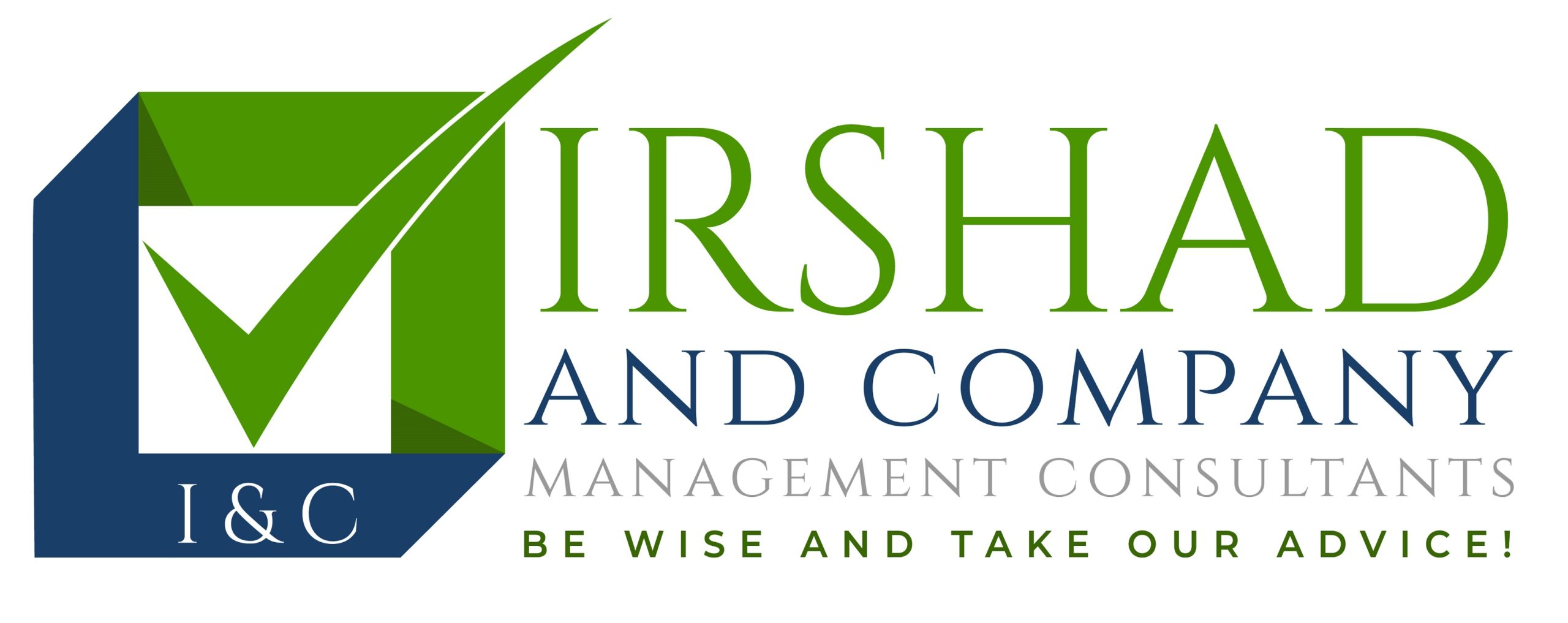Self employed tax deductible expenses enable more than 60% of freelancers to reduce their tax bills. In great detail, this blog looks into self employed tax deductible expenses.
Deductible costs for self employment tax enable independent professionals to be more free. Using such deductions, a recent analysis shows that 62% of self-employed people lower taxes. Self-employed tax-deductible expenditures might keep many annually. In 2025, small business people and freelancers note considerable thrifts. The guide breaks down self employed tax deductible expenses, offers self employed tax deductables examples, self employment deductions, and self employment expense deductions, and gives down-to-earth advice. Our conversations cover usual write-offs and monitoring techniques. We also provide two charts comparing alternatives and highlight important data. At last we evaluate three defining American case laws about taxes.

What Tax Deductible Expenses Does Self Employment Provide?
Self-employed tax deductible acquisitions are those that lower taxable income. These relate to freelance people, consultants, and independent experts. Expenses for equipment, travel, and a home office are all examples of tax breaks available for the self employed. Many professionals lower their taxes by means of self-employed tax deductible expenditures. Proper tax planning depends on them. Tax-deductible self employed costs have to be usual and compulsory. On Schedule C, companies note these costs. Many people offset income with self employed tax deductible costs. Tax-deduction cost for self employed taxpayers helps cash flow. Furthermore, these costs raise total tax savings. When you have records, it is easy to get self-employed tax-deductible expenditures. Furthermore, simple software can help keep track of tax deductible costs for self-employed people. Properly using tax-deductible costs for self employed stops further audits.
Common Instances of Deductible Costs
Tax-deductible costs for the self-employed cover a lot of expenditures. A typical self-employed tax deduction is a home office, for example. Other instances are phone, internet, and travel costs. Many independent contractors take self employed tax deductions for office materials. They also apply vehicle mileage self-employment deductions. Many also seek professional membership’s self-employment cost deductions. Legal fees as well as insurance belong to the tax deductible expenditure of self employed people. Some experts include education and training expenses. Furthermore, deductions for marketing expenses apply. Fully utilized, tax deductible costs for self-employed individuals are quite beneficial. All self-employed tax deductible costs statements must be clearly arranged.

Maximize Your Self Employed Tax Deductible Costs
One should seek to maximize the tax deductible expenses for self employed. Tax deductible expenses for self employed cut taxable income. Track every spending item using an appropriate accounting program. For every self employed tax-deductible expense, keep exhaustive accounts. Keep bank statements and invoices. Good record-keeping helps self-employed individuals to claim tax deductible expenses during audits. Furthermore, consult a professional about self employed tax deductions. Many consultants advise periodic checks. Tax deductible costs for the self employed help to refine the general tax strategy. Furthermore, self-employed tax-deductible costs help one to budget for future investments. One of the most important instruments for financial planning is self employed tax deductible expenditures.
Tracking and Classifying Costs
Self-employed tax-deductible costs have to be closely kept track of. Many experts track self-employed tax deductibles using digital systems. With many accounting solutions available, one can monitor spending effectively. Record receipts immediately using mobile applications. Regular entry keeps good self employed tax deductible expenses records. Categorize expenditures into clear groups. Categories include travel, office supplies, and home office. Keep a digital collection of self employed tax deductibles. This approach makes tax return preparation straightforward. Regular updates help preserve correct records. Effective tracking lowers anxiety during tax season. Track self-employed tax deductible expenses using spreadsheets or financial software.

Ways to Increase Credits
Review your spending every month. Failing to monitor self-employed tax deductible costs may cause them to go unnoticed. Always match bank statements with receipts. Identify recurring expenses that qualify for tax deductions for self-employed people. Consult a tax expert to verify self employed tax deductions. Update your files regularly to include every expenditure. Consider investing in accounting programs to help organize tax deductible expenses for self employed individuals. Regular evaluations enable you to catch missed deductions. Keep costs clearly categorized. Convert your documents into yearly summaries. Use these summaries during tax preparation. Reducing taxable income depends on the tax deductible costs for self employed individuals.
Table 1: Comparison of Deduction Categories
Below is a table comparing common deduction types.
| Expense Category | Qualifies as Self Employed Tax Deductible Expenses? | Typical Documentation Required | Example |
|---|---|---|---|
| Home Office | Yes | Lease/mortgage, utilities, layout | Percentage of home costs |
| Vehicle Expenses | Yes | Mileage logs, fuel receipts | Business travel mileage |
| Internet/Phone | Yes | Bills, allocation ratio | Portion of monthly bill |
| Office Supplies | Yes | Receipts, purchase records | Printer, stationery |
| Meals & Entertainment | Partially | Receipts, business purpose notes | Client meetings |
| Professional Services | Yes | Invoices, contracts | Legal or accounting fees |
Table 2: Key Facts About Self Employment Deductions
The following table shows important facts for self employed tax deductible expenses.
| Fact | Detail |
|---|---|
| Eligible for Claim | Freelancers, independent contractors, and sole proprietors |
| Record Keeping Requirement | Receipts and logs are mandatory |
| Percentage of Home Deduction | Based on square footage used for business |
| Vehicle Deduction Calculation | Standard mileage or actual expense method |
| Professional Fees Deduction | Legal, consulting, and accounting services |
| Impact on Taxable Income | Reduces overall taxable income significantly |
Understanding Self-Employed Tax-Deductible Costs in Great Depth
Reducing taxes depends on self employed tax deductible expenditures. Tax-deductible expenditures for self-employed people reduce taxable income. These costs cover several different areas. Self-employed tax deduction costs cover operating expenses. Every freelancer’s tax preparation rests upon self-employed tax deductible expenditures. Cut tax obligations using tax-deductible costs for self-employment. self employed tax deductions help a company to reinvest savings. Every assertion should be backed with proof. self employment deductions help a company to reinvest savings.
Legal Structure and Conformity
Self employed people tax-deductible expenses must conform to legal criteria. Self employed tax deductible costs must be common and needed for IRS purposes. There are several rules for self-employed tax-deductible expenses. Taxpayers have to use precise methods to claim their self-employed tax credits. Moreover, one must prove self employed tax deductible costs. Proper application of self-employment write-offs is defined by tax statutes. Every expenditure must be recorded by an expert. Audits examine tax deductible costs for self employed people. Legal risk is lowered by good adherence. For self-employment cost deductions, correct records maintenance is essential. Adhering to IRS rules guarantees that self employed tax deductible amounts qualify.
Including IT in Cost Management
With current technology, managing tax deductible costs for self employed is simpler. Many programs assist in real-time recording of self employed tax deductibles. Software tools can automatically organize costs. Use digital solutions to keep reliable records of tax-deductible self employment expenditures. Transition from paper documents to electronic ones. Daily monitoring of self-employed tax deductions is supported by digital solutions. Furthermore, they help improve accuracy in self-employment deductions. Tracking of self-employment cost deductions becomes much easier with technology. Effective apps lower errors and save time. Embrace technology to control tax deductible costs when self-employed. Data security is ensured by routine backups. For every freelancer, moving to digital tools is beneficial.

Strategic Planning Including Self Employed Tax-Deductible Expenditures
Keep your year in mind regarding self-employed tax deductible expenditures. Tax deductible costs for the self-employed influence your general tax plan. Plan monthly to review tax-deductible self employed costs. Track every expense that qualifies. Make a budget that includes self employed tax deductible costs. Examine your expenditures to identify more self employed tax deductible costs. Furthermore, regularly analyze financial statements. Collaborate with a tax specialist to confirm self employed tax deductions. Periodic assessments ensure no expense is forgotten. Good planning maximizes tax deductible costs for the self employed. Track costs with a calendar alert. This approach raises total savings.
Common Self Employed Tax Deductible Expenditures Illustration
Many self-employed individuals claim office supplies. Travel expenses also count among self-employment tax deductible charges. Tax-deductible expenditures for self-employed people include home office expenditures. Self-employed tax deductible costs relate to auto mileage. Also included in tax deductible expenses for self-employed people are client entertainment and dining. Furthermore, tax deductible costs for self employed individuals include professional expenses. Many claim self employed tax writeoffs for marketing. Software subscriptions are another example of self employed tax deductible costs. Let these be a starting point for self-employment cost deductions. Accurately document every expenditure. Good records support tax deductible expenses claims for the self-employed.

Landmark Case Law in U.S. Taxation
Self employed tax deductible expenses have evolved through landmark legal decisions.
- Crane v. Commissioner (1947) declared that expenses must be regular and necessary.
- Commissioner v. Tellier (1973) clarified the legitimacy of mileage and meal deductions.
- Schlup v. Commissioner (1979) confirmed that proper documentation is absolutely vital.
These cases influence how deductions for tax deductible expenditures by self-employed people are claimed. They also underline criteria for self-employed tax credits. These landmark rulings help clarify the application of deductions for self employment. They confirm numerous self employment expense deductions and guarantee consistency in tax appraisals. Experts rely on these judgments for compliance.
More Sophisticated Techniques for Raising Deductible Costs
Delve into sophisticated strategies for lowering tax deductible costs for self-employed people. Consider getting a qualified audit of your costs. Outsourcing bookkeeping may help you capture every self-employed tax deductible cost. Allocate time weekly for expense review. Monitor self employment tax write-offs using financial dashboards. Modify plans if necessary. Critique your quarterly expenditure tracking approach. Optimize software for self-employment deductions. Also, seek best practices from peers. Advanced strategies improve claims for self employment expense deductions. This proactive approach creates long-term savings.
Common Mistakes and Solutions for Them
Many mistakes occur with tax-deductible expenses for self-employment. Keep personal and business costs separate. Avoid overvaluing costs on self-employed tax-deductible items. Document every expense in detail. Erroneous records could disqualify self-employed tax deductions. Many professionals neglect small expenses. Even minor costs can add up to valuable deductions. Prevent delays in record submission. Stay updated on IRS rules regarding tax deductions for the self employed. Good organization prevents audit problems. Employ sensible accounting practices for self-employment deductions. Review your records before filing taxes to prevent mistakes in self-employed tax deductions.

Tax Planning for Varying Types of Companies
Different business models require various approaches to self-employed tax deductible expenditures. Sole proprietors and independent contractors face unique challenges. Service-based businesses have distinct self-employment tax deductible costs. Self-employed tax deductible expenses differ for retail or online companies. Adjust your strategy based on your business type. Consult a tax professional on minimizing self employment taxes. Every business should assess its own self-employment claims. Adjust self employment cost write-offs to meet business requirements. Overall savings are increased and tax efficiency improves. Consider regular financial reviews to uncover additional tax deductible expenses if you work from home.
Effect of Legislative Modifications on Deductible Costs
Tax regulations change frequently and affect tax deductible expenses for the self employed. Current changes impact self-employed tax write-offs. Legislative amendments might increase or decrease deductions for self employment. Stay up to date on tax law modifications regarding self-employment expenses deduction. Watch for IRS updates carefully. Adjust your expense tracking as necessary. Follow updated standards for tax-deductible expenses for self employed. Overall tax planning is influenced by these developments. Compliance guarantees that self employed tax deductible costs remain valid. Adapt quickly when legislation changes. In modifying self employed tax deductible expense claims, professional guidance is essential.
Projected Developments in Self-Employed Tax Deductible Costs
Forecasts point to more detailed scrutiny of self-employment tax-deductible costs. Technology will further simplify record keeping. Future tax measures might provide additional incentives for self-employed tax-deductible deductions. Look for clearer instructions on self employed tax credits. Industry standards will evolve regarding deductions for self employment. Stay ahead of changes in self-employment expenditure deductions. Adapt your strategies as new policies emerge. Future trends show strong support for small business write-offs. Stay informed by following tax news for updates on self employed tax deductible costs.
FAQs
What counts as tax deductible charges for self employment?
How should I record tax deductible costs for self-employment?
Can I use home office costs as tax-deductible expenses for self employment?
What is the difference between self employed tax deductions and self employment deductions?
Are self employment expense deductions allowed for all freelancers?
How often should I update my records for self employed tax deductible expenses?
Will legislative changes affect self employed tax deductible expenses?
Can technology help with tracking self employed tax deductible expenses?

Conclusion
Self employed tax deductible costs are crucial for independent professionals. Self employed tax deductible costs lower tax liability and improve cash flow. Use self employed tax deductible costs to manage costs effectively. Self employed tax deductible costs should be tracked and documented rigorously. Applying self employed tax deductions, self employment deductions, and self employment expense deductions wisely increases net profit. Moreover, informed strategies based on landmark case laws strengthen claims. Transition your records regularly and stay updated on legislative changes. In conclusion, maximizing self employed tax deductible costs is key to successful tax planning. Take action now and consult professionals for additional guidance on self employed tax deductible costs.
Consequently, independent professionals rely on self employed tax deductible expenses to manage their finances effectively. These deductible expenses help reduce tax burdens and boost cash flow. Efficient cost control hinges on vigilant monitoring of self employed tax deductible expenses. By applying smart strategies for self employed tax deductions, self employment deductions, and self employment expense deductions, net profit can rise significantly. Furthermore, informed approaches drawn from landmark case laws bolster these strategies. It is essential to regularly update your records and stay abreast of legislative changes. Ultimately, successful tax planning depends on maximizing self employed tax deductions. Act now and consult experts for further guidance on tax deductible expenses for self-employed individuals.
If you want to read other tax-related blogs, check out our comprehensive tax guides and expert insights here.




